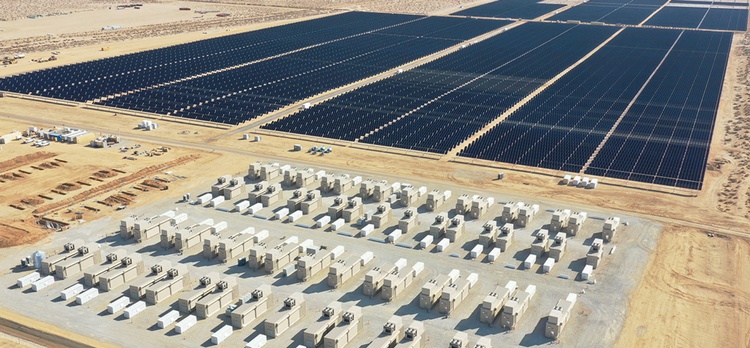January 20 NEC Energy News
¶ “Largest Solar And Storage Project In US Activated” • Terra-Gen and its contractor, Mortenson, announced activation of the Edwards & Sanborn Solar + Energy Storage project, the largest solar and storage project in the US. It has a solar capacity of 875 MW (DC) and nearly 3.3 GWh of energy storage. It has a 1.3 GW interconnection capacity. [pv magazine USA]

¶ “Nuclear Fission Is Anything But Clean” • Vermont’s PSD has proposed an additional standard for energy production allowable under the Renewable Energy Standard, which is not “renewable” but “clean.” It says it needs the change because “Vermont utilities have embedded contracts for … nuclear power.” But nuclear is not clean. [Brattleboro Reformer]
¶ “In 2023, Electric Cars Outsold Diesel Cars In Europe” • According to European Automobile Manufacturers’ Association data, a total of 1,538,621 battery electric cars were registered in the EU last year. Compared to the 1,123,444 battery electric cars sold in 2022, this represents an increase of 37%. Diesel deliveries came in at 13.6%. [CleanTechnica]
¶ “Why Cold Air Outbreaks Are Still Happening Amid Global Warming” • It may be counterintuitive, but extreme cold blasts like much of the US is now having will continue to occur even as global temperatures soar to record levels. Research shows that climate change may bring more frequent and intense heat waves, but freeze events will still happen. [ABC News]

¶ “Despite Russia, A Monster Offshore Wind Farm Is To Be Unleashed In Baltic Sea” • Neptunus, a 3.1-GW wind farm, is putting the high profile brand IKEA front and center in effort to cut Europe free from Russian fossil energy imports. Neptunus pairs the Swedish renewable energy developer OX2 with IKEA retail franchisee, Ingka Group. [CleanTechnica]
¶ “EU Reaches Deal On Near Phaseout of Diesel Trucks” • In the EU, lawmakers agreed to CO₂ emissions targets for heavy-duty vehicles that will phase out almost all sales of new diesel trucks by 2040. Under the new guidelines, manufacturers will have to cut the average emissions of new trucks by 45% in 2030, 65% in 2035 and 90% in 2040. [CleanTechnica]
For more news, please visit geoharvey – Daily News about Energy and Climate Change.
